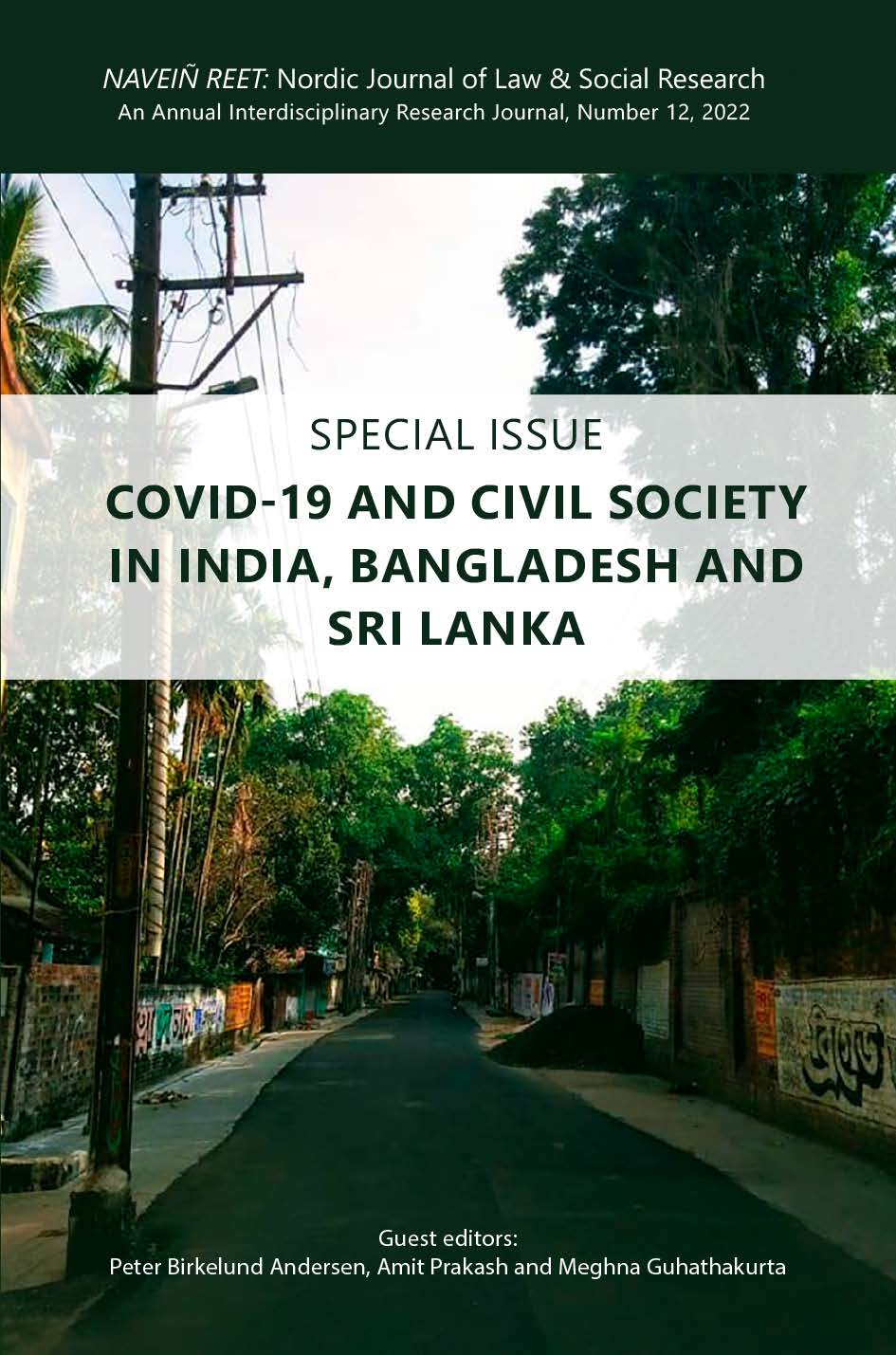The Impact of Covid–19 on Ethnic Minorities in Sri Lanka
Keywords:
Covid–19, ethnic minorities, state responses, post-pandemic recovery, Sri LankaAbstract
The unforeseen impact of Covid–19 and its outcomes, including a variety of state responses, have directly or indirectly affected all segments of human society in multiple ways. Most importantly, certain communities have been more distressed than others. In this global context, Sri Lanka seems to be among the countries where the negative impacts of Covid–19 on ethnic minorities have been more severe and intemperate. The article’s overarching research question concentrates on the Sri Lankan government’s responses to the pandemic and their unequal impact on some ethnic groups since the first quarter of 2020 through 2021. This qualitative study finds that the spread of the virus extended and intensified the inequalities, frustration and discontent among ethnic minorities, as the experience of uneven impacts is clearly and directly associated with already-entrenched injustices that prevent the benefits of mainstream socio-economic processes from reaching certain Sri Lankan ethnic minorities. It is likely that this situation will continue well into the post-pandemic recovery stages. The article therefore concludes that Sri Lanka needs to undertake a coordinated, consultative process founded on the principles of equality, equity, social justice and human rights, to develop policies and strategies to address issues that rendered the sufferings of ethnic minorities severe during both the pandemic and the post-pandemic recovery stage.
Downloads
Published
How to Cite
Issue
Section
License
Counting from number 12 (2022), articles published in NNJLSR are licensed under Attribution 4.0 International (CC BY 4.0). Readers are allowed to copy and redistribute the articles in any medium or format, to adapt and revise the articles, and use the articles for commercial purposes, provided that the readers give appropriate credits.
No Creative Commons licenses are applied on articles in number 1 (2009)-11 (2021). All rights reserved by the authors. Readers are allowed to download, read, and link to the articles published in volume 1 (2009)-11 (2021), but they may not republish or redistribute these articles without permission of the authors.

